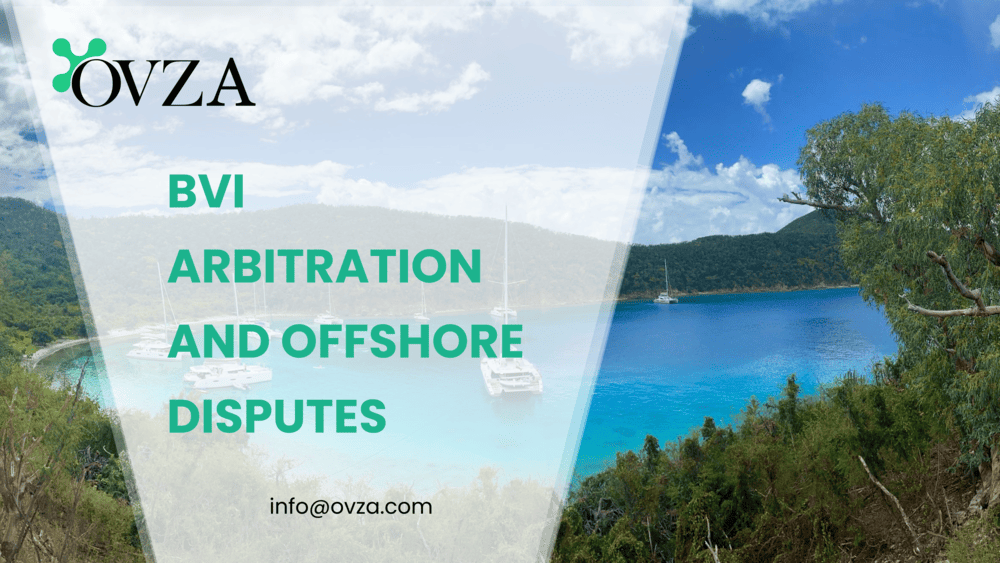BVI arbitration offers enforceable dispute resolution for offshore companies under the Arbitration Act and New York Convention, with global recognition. The British Virgin Islands (BVI) has long held a reputation as a premier jurisdiction for offshore company formation. Known for its tax-neutral environment, modern corporate laws, and investor-friendly infrastructure, the BVI attracts thousands of international entities each year. However, as the volume and complexity of cross-border transactions involving BVI entities has grown, so too has the demand for reliable and enforceable mechanisms for dispute resolution. Arbitration has emerged as the preferred legal pathway, and the BVI has made significant reforms to support this trend.
1. The Legal Basis for Arbitration in the BVI
Arbitration in the BVI is governed by the local Arbitration Act, 2013, which aligns closely with the UNCITRAL Model Law. This legislation provides the procedural backbone for arbitration proceedings in the jurisdiction and confirms BVI’s position as a modern, arbitration-friendly offshore financial center. The Act gives legal recognition to arbitration agreements and allows for the appointment of arbitrators, enforcement of interim measures, and recognition of arbitral awards with minimal court intervention.
The BVI is also a party to the New York Convention on the Recognition and Enforcement of Foreign Arbitral Awards, a key international treaty that ensures arbitral decisions made in the territory can be enforced in over 160 other jurisdictions. This legal framework enhances the credibility of BVI arbitration and increases the confidence of international investors who use BVI companies in global transactions.
BVI companies frequently appear as parties in commercial agreements, joint ventures, shareholder arrangements, and trust structures. Disputes that arise under these contracts often include arbitration clauses specifying the BVI as the seat of arbitration or, at minimum, agreeing to the application of BVI law. In many instances, arbitration enables faster and more confidential outcomes than litigation in foreign or domestic courts.
2. Practical Use of BVI Arbitration in Offshore Disputes
Arbitration involving BVI companies is often used in disputes over shareholder agreements, fund management, trust administration, and joint ventures. These matters frequently involve parties from multiple jurisdictions, making litigation complex and inefficient. In such scenarios, BVI arbitration offers a neutral and enforceable forum. Given the international nature of these disputes, the flexibility and confidentiality of arbitration are key advantages over open court proceedings.
The British Virgin Islands International Arbitration Centre (BVI IAC), launched in 2016, plays a central role in hosting such proceedings. Located in Road Town, the BVI IAC provides world-class facilities and is supported by institutional rules modeled after international best practices. It also benefits from a robust pool of legal professionals experienced in cross-border disputes. According to the BVI IAC itself, its procedures are specifically tailored for commercial and financial services disputes, which makes it particularly well-suited to offshore matters involving BVI entities.
Enforcement of BVI arbitral awards globally is one of the system’s strongest assets. Under the New York Convention, parties can enforce arbitral awards in countries like the United States, the United Kingdom, Singapore, and across the European Union. This is a significant reason why legal practitioners and international investors include arbitration clauses in agreements involving BVI companies. The reliability of enforcement abroad makes the BVI a credible jurisdiction not only for forming entities but also for resolving disputes.
Yet the decision to use arbitration in the BVI must be paired with careful legal drafting. Poorly written arbitration clauses can lead to jurisdictional challenges, enforcement issues, or costly preliminary hearings. As with all offshore structuring, proper legal advice is essential to ensure enforceability and procedural efficiency.
While BVI arbitration is increasingly accepted in private equity, fund administration, and high-net-worth family office disputes, it is important to evaluate its fit case by case. Factors such as the nature of the dispute, the legal domiciles of the parties, and the risk of local enforcement resistance all influence the optimal legal strategy.
3. Enforceability, Legal Risks, and Strategic Considerations
The enforceability of BVI arbitration awards is grounded in the New York Convention, to which the BVI acceded through the United Kingdom’s ratification. This legal status ensures that awards rendered in the BVI can be enforced in more than 160 contracting states. As noted by the UNCITRAL Secretariat, the Convention streamlines enforcement across jurisdictions, bypassing the often complex and costly procedures associated with foreign judgments. This international legal foundation makes arbitration a strategic asset for offshore companies operating in multiple markets.
However, enforceability is not without limits. Courts may refuse to enforce an award if due process standards were violated, if the arbitration agreement was invalid under applicable law, or if enforcement would contravene the public policy of the enforcing jurisdiction. These risks are not unique to the BVI but are inherent in cross-border arbitration more broadly. Nonetheless, the BVI’s clear adherence to international norms—alongside its own strong legal infrastructure—has contributed to a high level of confidence among practitioners and investors alike.
A key legal consideration is the inclusion of arbitration clauses that comply with international standards. Many disputes fail not because arbitration is inappropriate, but because the clauses are vaguely drafted or inconsistently applied. The International Bar Association and ICC both publish model clauses that can be adapted for BVI-based arbitration agreements. In addition, parties should ensure that their contracts address the seat of arbitration, applicable law, number and method of appointing arbitrators, and language of the proceedings.
The evolution of arbitration in the BVI reflects a broader shift in how offshore jurisdictions are responding to the growing complexity of international financial disputes. Jurisdictions once known solely for low-tax incorporation are now providing full-service legal environments, capable of not only supporting investment structures but also resolving the disputes that arise from them. The BVI’s legal regime is one of the most advanced in this regard, bolstered by the Arbitration Act 2013, the BVI IAC, and an independent judiciary that supports arbitration over litigation.
For those using or planning to use BVI entities in cross-border transactions, integrating arbitration as part of a legal risk management strategy is no longer optional—it is essential. Legal professionals, fund managers, and international family offices should evaluate the merits of arbitration in the context of their broader offshore strategy.
Conclusion
BVI arbitration has emerged as a cornerstone of offshore dispute resolution, offering confidentiality, efficiency, and global enforceability. As offshore financial transactions become more complex, the legal tools to resolve disputes must keep pace. Arbitration provides BVI companies—and their counterparties—a flexible, internationally recognized mechanism to manage legal conflict without resorting to slow or unpredictable litigation.
Whether dealing with shareholder disputes, fund governance issues, or cross-border commercial claims, parties using BVI entities are increasingly choosing arbitration for its reliability and strategic advantage. Supported by international conventions, modern legislation, and world-class facilities, BVI arbitration is more than a dispute resolution method—it is a vital component of the offshore legal infrastructure.
Disclaimer: The information provided on this website is intended for general reference and educational purposes only. While OVZA makes every effort to ensure accuracy and timeliness, the content should not be considered legal, financial, or tax advice.












